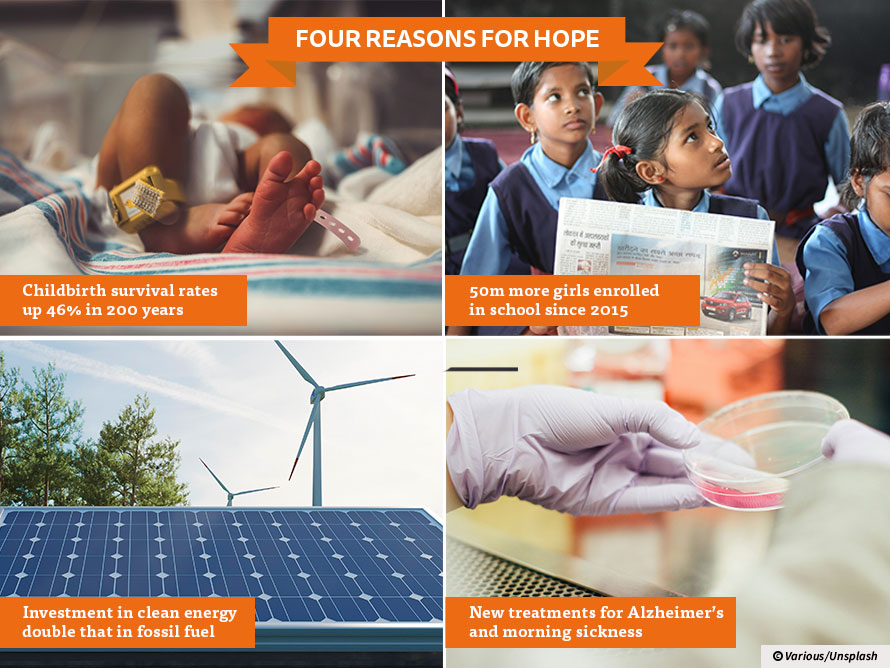Should we be more cheerful? The media often suggests that the world is getting worse, but if we look again we can find plenty of reasons for optimism.
The news is terrible… but the truth is good
 Cause for celebration: Our brains are hardwired to react more strongly to negative events.
Cause for celebration: Our brains are hardwired to react more strongly to negative events. Glossary
Famine - A widespread scarcity of food.
Investment - When you put money into a project or idea in the hope it will be successful in the future.
RSV - A contagious virus that causes cold-like symptoms.
Sickle cell disease - A group of inherent disorders that cause unusually shaped red blood cells in sufferers.
Alzheimer's disease - A progressive disease that causes brain damage over time. It is a common cause of dementia.
Morning sickness - Nausea during pregnancy.
Treaty - A formal agreement, usually between two or more countries.
UN - United Nations. An intergovernmental organisation based in New York that aims to maintain international peace and security.
Pessimistic - Tending to believe that the worst will happen.
AI - A computer programme that has been designed to think.
